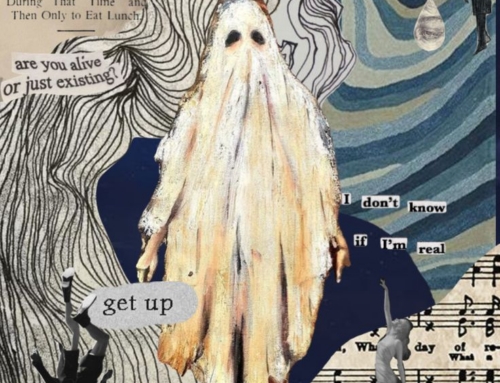The other day I tweeted something which was, admittedly, somewhat snarky. I was commenting on all the self appointed laymen who are liturgical experts and wondered why, if they were so scrupulous about “proper liturgy” they didn’t become priests so they could ensure the liturgy was celebrated correctly just the way they like it.
A tweet is a tweet is a tweet and I use Twitter intentionally to stir the pot a little and get people thinking.
I do recognize that the laity have a role to play in advising on the celebration of the liturgy and those with appropriate expertise, training and knowledge should weigh in. They should bring their skills to bear not only on the liturgy, but in sacred music, art, architecture and the whole range of worship. Furthermore, the laymen who have done this well are some of the finest servants of the church. Give them honors. Give them trumpet fanfares. Throw flowers at their feet.
However, a couple of problems can arise. The first is obvious: laymen as much as clergy have strong opinions on liturgical matters and these opinions are invariably grounded in theological opinions. Consequently the lay liturgiologist can be just as ideologically driven as the clergy. The modernist liturgiologist wants to turn the liturgy into a happy meal while the traditionalist wants his baroque fantasy. Both are convinced that this is not only a matter of taste, but it is “the right thing to do.”
If one is not careful we end up in the situation in which the people serve the liturgy rather than the liturgy serving the people.
Does this mean we should be congregationalist, utilitarian and democratic–simply giving the people what they want? No. True leadership needs to be exercised in which the wants of the people are balanced by the needs of the people. What we want is rarely what we need.
The liturgy should meet us where we are, but it should also take us where we need to be.
The second problem with the enthusiastic lay liturgiologist is that most often he is driven by an ideal in his own mind of what “proper liturgy” should look like, and this can become an ideological position cut off from reality. He argues for this position or that position based on his research, his theological reading, his historical understanding and a whole range of arguments about what is “proper” with little understanding or concern not only for the needs and spiritual growth of the people, but also for the reality of parish life.
I have come across liturgiologists–both modernist and traditionalist–who seem flabbergasted that a pastor would even consider where the people are, how they will respond to liturgical changes and what they might appreciate–not only because of what “they like” but also what helps them in worship, inspires them and aids their approach to God. The liturgiologist is apt to sniff at pastoral concern with a haughty disdain for the people in the pew.
When the needs of the people are expressed by the pastor, the response from the liturgical expert will be,
“They will learn to like it.” or “This is the correct way of doing it. They don’t know what is correct.”
Thus the old joke, Q: “What is the difference between a liturgiologist and a terrorist? A: You can negotiate with a terrorist.
People fuss about this proper liturgy or that proper liturgy, and extreme examples of abuse are spouted by both sides against the other.
“I don’t wish to see the priest dancing or processing in on roller skates thank you very much!” sniffs the traditionalist.
“Those traditionalists are all so self righteous and prissy in their fiddle back chasubles, maniples and all their lacy finery!”
“Spare me the clown masses and the music that sounds like a cross between the Carpenters and a leftist pep rally!” grumbles the trad.
“Those traditionalists! They’re just legalistic fundamentalists but with incense…”
I could go on.
The simple fact of the matter is that the Novus Ordo mass is the Ordinary Form and it is the form celebrated by the vast majority of Catholics around the world. This has brought about an amazing degree of diversity. The Novus Ordo can be celebrated in such a “high church” manner that is as solemn and ritualistic as the Extraordinary Form or it can be celebrated with rock music, happy clappy atmosphere and sloppy informality.
This is not going to change. Activists on both sides of the question may not like the diversity and may wish things were more uniform and “proper” but maybe, just maybe it could be possible mightn’t it that this diversity is what the church needs at this time to respond to the rapid changes and flexible demands of modern life? It is arguable that this flexibility of style allows for unity (because the Ordinary Form is still the only one permitted) and the diversity of a fast changing culture in a global church.
I’ve been to countless masses and hundreds of Catholic churches in my almost 25 years of being a Catholic and I can count on one hand the number of terrible abuses I’ve seen. The majority of Novus Ordo masses have been celebrated with simple solemnity, reverence and care. Usually the music was bad–very bad. Often the preaching was unskillful and incompetent, but mostly it was middle of the road, ordinary and down to earth.
Then when I’ve met the people, most often I’ve encountered good, ordinary Catholics–Catholics who are doing the best they can. They love the Lord. They love the church. They wish it were better, but they are there doing what they can with what they have where they are.
They put up with the failures and foibles of us priests and do so with an extraordinary amount of patience, love and good will.
What is the right response? To tell you the truth, I don’t know.
But what I do know is that they keep telling me that “liturgy” means “work of the laity” or “the public work”
It seems to me therefore that a “proper liturgy” is what works. The high ideals should be balanced by practicalities, and a completely utilitarian approach should be balanced by high ideals of worship. The universal is balanced by the local and the local elevated by the universal. The unity can exist within the diversity and the diversity can be fulfilled in the unity.
Is such an approach neat and tidy and always just the way we want it?
No. It is messy.
I guess if you want a church that is neat and tidy and always just the way you want it you had better join a sect or a religious commune.
And good luck with that…







What is going to help us to follow Jesus and be more holy? Are we helping make saints?
I apologize for not having gone to Oxford or Chambridge but maybe if the laity gets more involved we can keep people from joining the Mormons or JW. I don’t have any money so I can most likely be ignored. All I know is I have never been so happy at any Catholic church than I am right now since we have had a traditional music director and you made that happen. You are the best homilst I have ever listened to and your desire to promote beauty, truth and goodness always makes me glad I left dark Chicago. Still, I sense a disturbance in the force.
Missing from the discussion was Ralph and Jane Grumbler, the unsmiling duo who prefer no music at all which is why they are only found at Fr. McSpeed’s 5:00 PM Saturday no music, 30 minute Mass. All counts the same as they will tell you. On the subject of music, I had a previous pastor who all too frequently railed against Luther, as if the was some danger of us sliding over to the nearest Lutheran Church with our envelopes. I never understood why the good Pastor allowed the Music director to frequently insert ” A Mighty Fortress is Our God ” into the Hymn selection. Always struck me as humorous the sight of him hymnal open leading the congregation in one of Luther’s Hymns. I like Bernadette Farrell personally and think her music has a place in our lives, not at every Mass but certainly at some. I also enjoy Tridentine Masses but not to the exclusion of other forms, to me there are more pressing issues facing our Church.